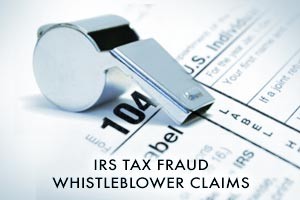 The fight against fraud received some significant help last week when Senators Chuck Grassley and Ron Wyden introduced legislation geared to strengthen the IRS Whistleblower program.
The fight against fraud received some significant help last week when Senators Chuck Grassley and Ron Wyden introduced legislation geared to strengthen the IRS Whistleblower program.
If passed into law, the IRS Whistleblower Improvements Act of 2017 will provide greater protections to whistleblowers from employer retaliation and will also foster greater communications between the IRS and whistleblowers.
Better Protection
The law would extend anti-retaliation provisions to IRS whistleblowers that are currently afforded to whistleblowers under other whistleblower laws, such as the False Claims Act and Sarbanes-Oxley. This is important because IRS whistleblowers are often easily identifiable because there are generally a small number of individuals at a company that would be in position to have the necessary information to report tax fraud.
Better Communication
The law would allow the IRS to exchange information with whistleblowers where doing so would be helpful to an investigation. It would further require the IRS to provide status updates to whistleblowers at significant points in the review process and allow for further updates at the discretion of the IRS. It does this while ensuring that the confidentiality of this information is maintained. The lack of communication between the IRS and whistleblowers has long been an issue raised by whistleblowers and their attorneys.
Senator Grassley, who has long been a champion of whistleblower programs, noted that:
whistleblowers have helped the IRS recover more than $3 billion for the taxpayers that otherwise would have been lost to fraud. Whistleblowers have the potential to help even more. They need assurances that putting their jobs at risk carries protections. They also need better communication about where their cases stand so they’re not sitting in limbo. This bill will offer a welcome mat to those who are too often treated like skunks at a picnic.
The IRS Whistleblower Office pays money to people who blow the whistle on persons who fail to pay the tax that they owe. If the IRS uses information provided by the whistleblower, it can award the whistleblower up to 30 percent of the additional tax, penalty and other amounts it collects.
James Hoyer, P.A. has experience representing whistleblowers who have reported tax fraud to the IRS. If you believe you have information that may help the IRS recover unpaid taxes and have any questions about the program, don’t hesitate to contact us.


